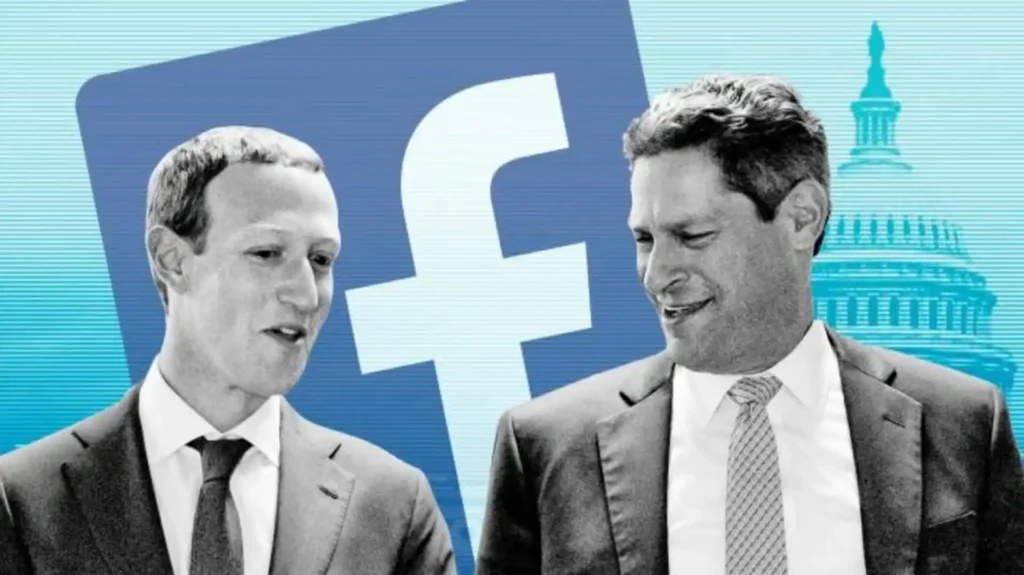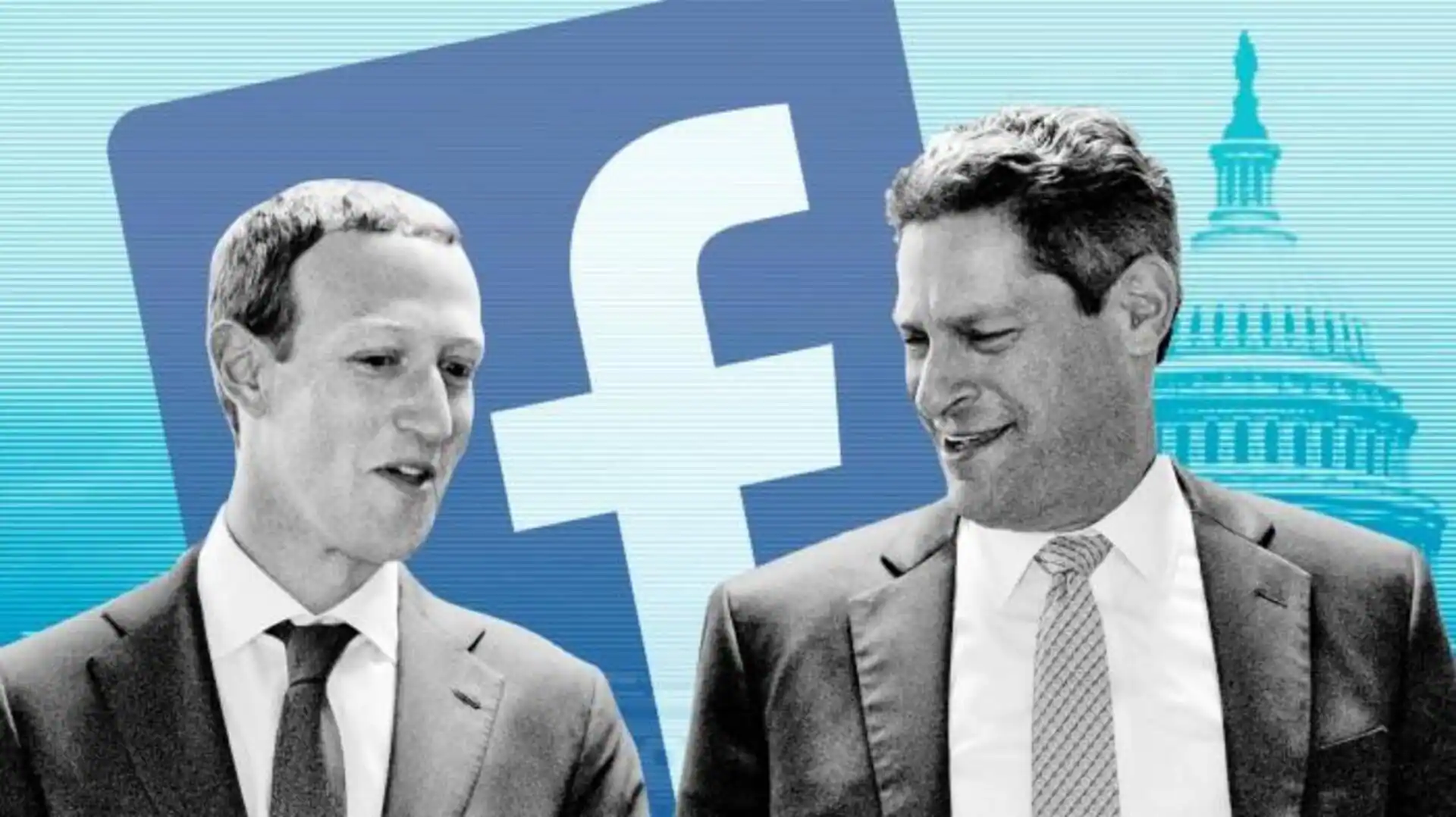In the labyrinthine world of social media titans, the appointment of a new policy chief carries the weight of a royal decree. This appointment is like the orchestration of a symphony, where each shift in personnel sets new notes that reverberate through the digital realm. In the realm of Meta, formerly Facebook, their selection of a new policy chief is metaphoric of a chess game, each move carefully calculated to navigate the labyrinthine maze of politics, free speech, and societal impact. As the pieces align, one name emerges: Will Castleberry, a seasoned navigator of the political landscape and a staunch advocate of former President Trump.With Castleberry at the helm of policy,Meta’s social media symphony is poised for a new chapter,one where the chords of free speech,political influence,and the symphony of public opinion will intertwine in an intricate dance.
Metas Trump-Aligned Policy Chief: Implications for Platform Governance
The appointment of Nick Clegg, a former British deputy prime minister and a close ally of Donald Trump, as Meta’s president of global affairs has raised concerns about the direction of the company’s policies. Meta, which owns Facebook, Instagram, and WhatsApp, has faced criticism over its moderation of political content, particularly in relation to the spread of misinformation and hate speech. Clegg has previously expressed support for Trump and has been accused of turning a blind eye to hateful content on his own platform, which could lead to a relaxing of Meta’s content moderation policies. This could have implications for the 2024 presidential election in the US and the spread of misinformation on a global scale.
Navigating Political Polarization: Metas Dilemma and Potential Solutions
The appointment of a Trump-amiable policy chief at Meta has raised concerns about the platform’s ability to navigate political polarization. Critics argue that the move will further entrench the company in the partisan divide, while proponents believe it will bring much-needed diversity of thought to Meta’s decision-making. The appointment has highlighted the challenge Meta faces in balancing the need for political neutrality with the reality of its platform being used to spread misinformation and hate speech.
| Possible Solutions | Pros | cons |
|---|---|---|
| Increased Transparency: Requiring Meta to disclose more information about its algorithms and content moderation policies could help build trust and reduce bias accusations. |
|
|
| Independent Oversight: Establishing an independent body to review Meta’s content moderation decisions could provide an impartial assessment of bias and help restore public confidence. |
|
|
| User Education: Investing in educating users about media literacy and identifying misinformation could help reduce the spread of harmful content. |
|
|
Balancing Free Speech and Safety: Metas Approach in Turbulent Times
Meta’s recent appointment of a Trump-friendly policy chief has sparked a discussion about the social media giant’s approach to balancing free speech and safety. Meta has long maintained that its goal is to create a platform where people can express themselves freely while also protecting users from harmful content.Though, the company has faced criticism from both sides of the political spectrum for its handling of content moderation. Some critics argue that Meta has been too swift to remove conservative content, while others claim that the company has allowed too much hate speech and misinformation to spread on its platform. Meta’s new policy chief, Joel kaplan, is a former staffer for the Trump administration and is known for his support of conservative causes. His appointment has raised concerns that Meta could become more lenient in its approach to content moderation, which could lead to an increase in hate speech and misinformation on the platform. Though, Meta has stated that kaplan will not be responsible for content moderation decisions and that the company’s policies will remain the same.It remains to be seen how Meta will balance the demands of free speech and safety in the coming months and years.
Metas Trump-Friendly Direction: Assessing the Road Ahead
meta’s recent appointment of a policy chief with a history of supporting Trump’s policies has sparked concerns that the platform may take a more favorable stance towards the former president. While this move could possibly benefit trump in his future political endeavors, it also raises questions about the company’s commitment to neutrality and its ability to moderate content fairly.
| Platform | Trump-Related posts |
|---|---|
| Increased significantly | |
| Banned | |
| YouTube | Shadow-banned |
It is too early to say definitively whether Meta’s new policy chief will lead to a major shift in the platform’s approach to Trump-related content.However, her appointment has undoubtedly sent a signal to Trump’s supporters that Meta may be more receptive to their views in the future. This could have significant implications for the political landscape, both in the United States and around the world.
closing Remarks
As the dust settles on this appointment, we eagerly await to see how it will shape Meta’s policies and their impact on the ever-evolving digital landscape. As the internet and social media continue to play an integral role in our lives, it will be engaging to observe the balance between freedom of expression and responsible stewardship in the hands of a company with such a vast reach. The digital age promises both challenges and opportunities, and it is indeed up to all stakeholders to navigate this intricate terrain with wisdom and foresight, ensuring that the virtual realm remains a place that enriches our lives while fostering a sense of inclusivity and mutual respect.



